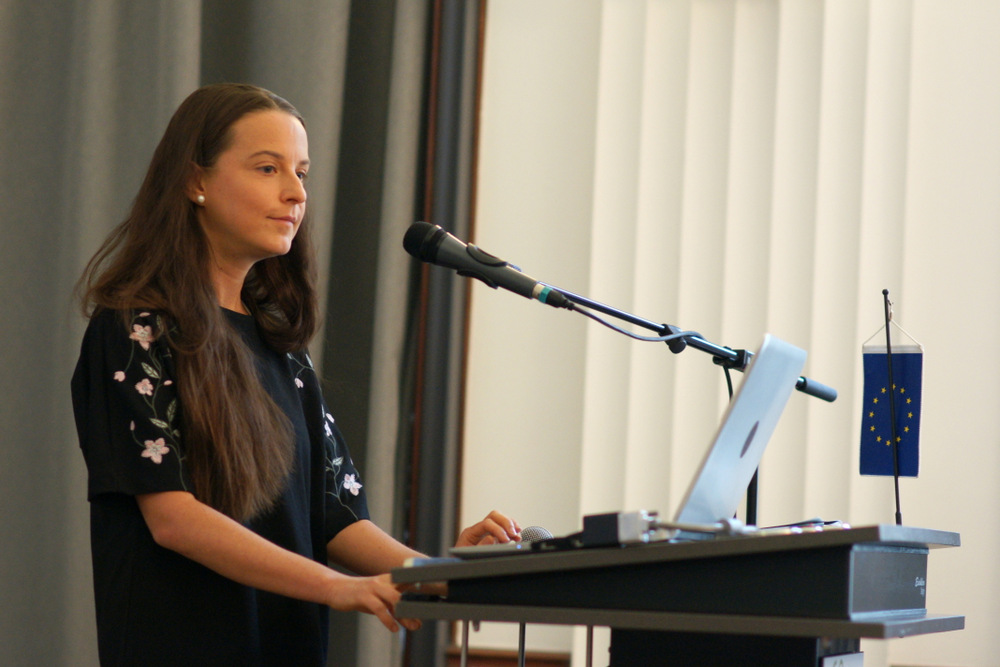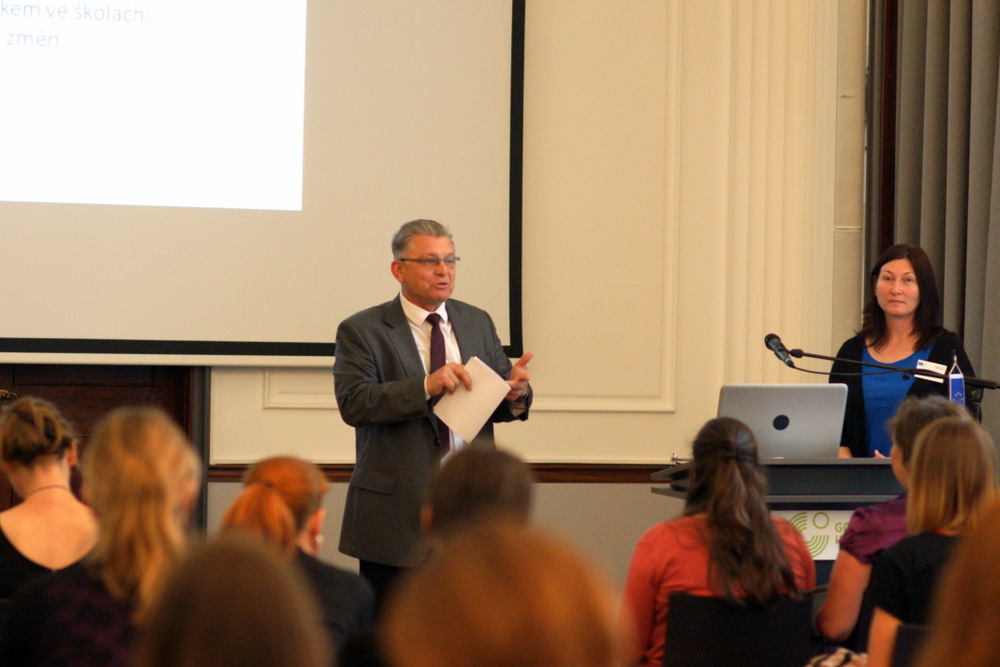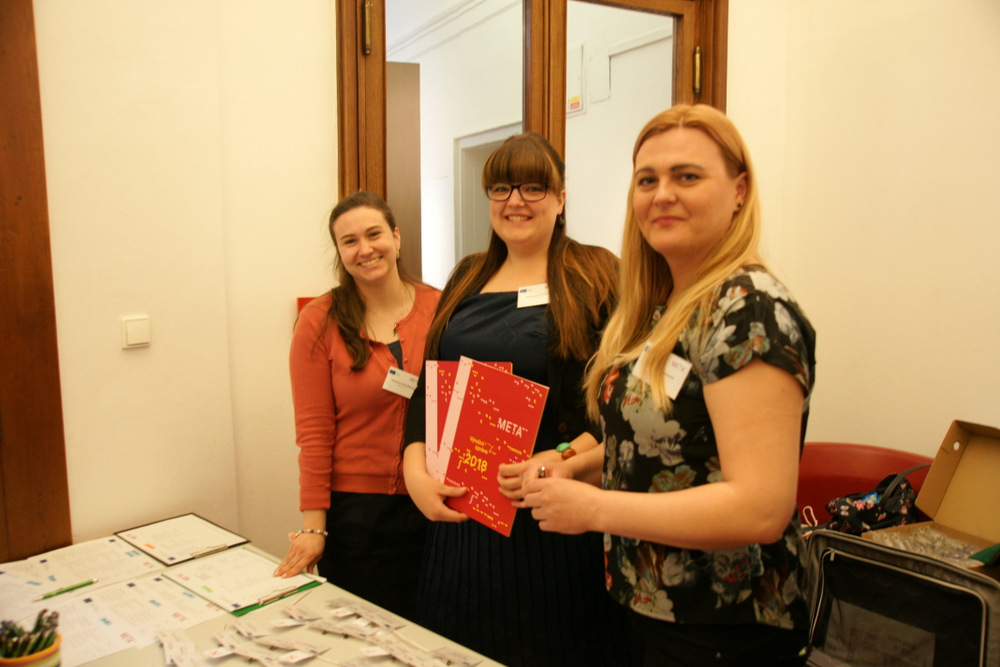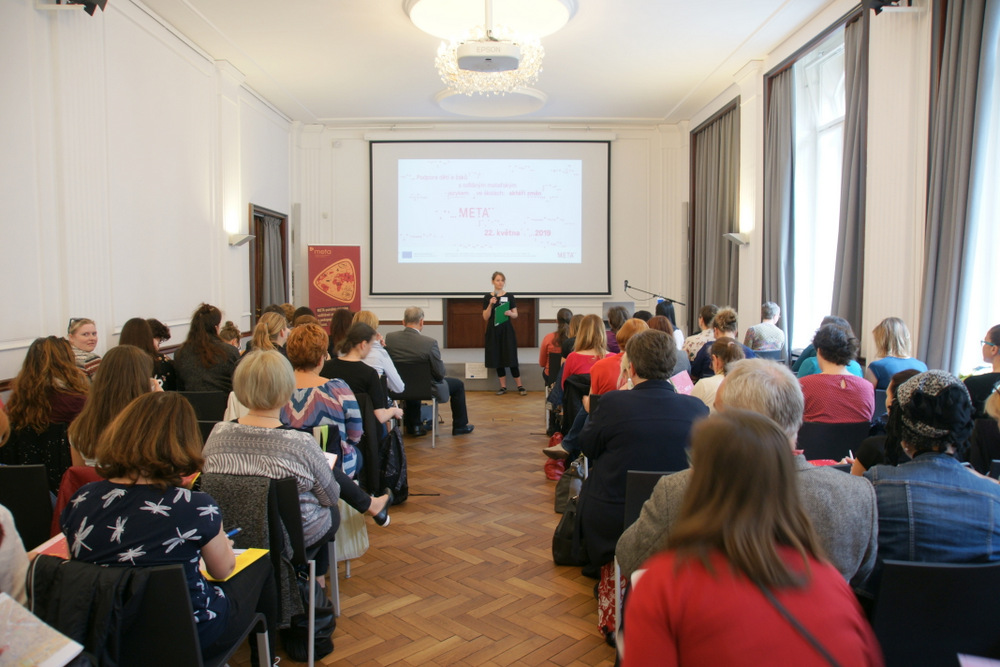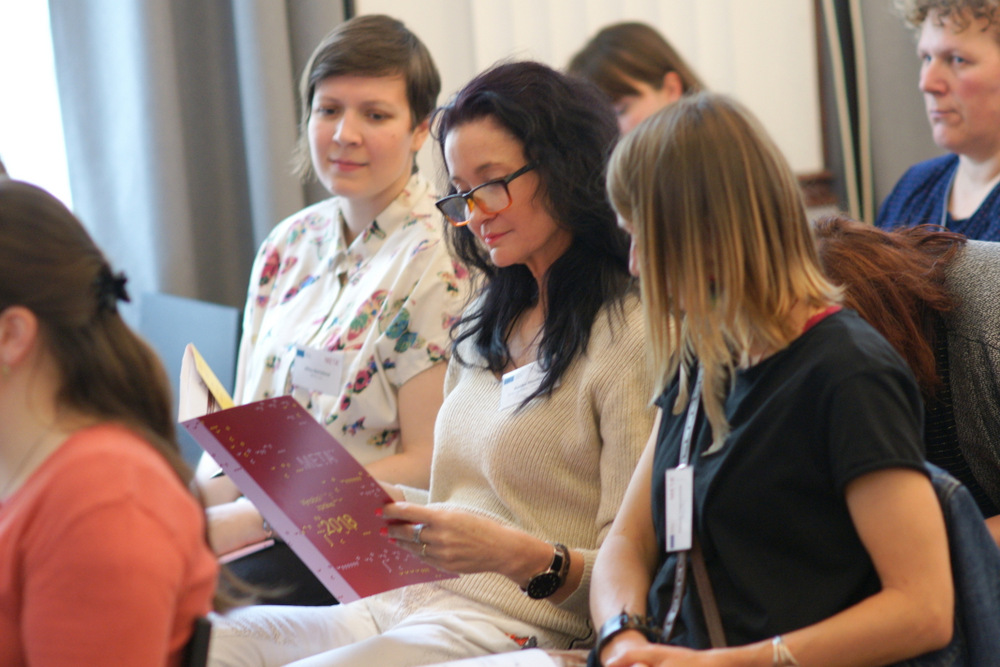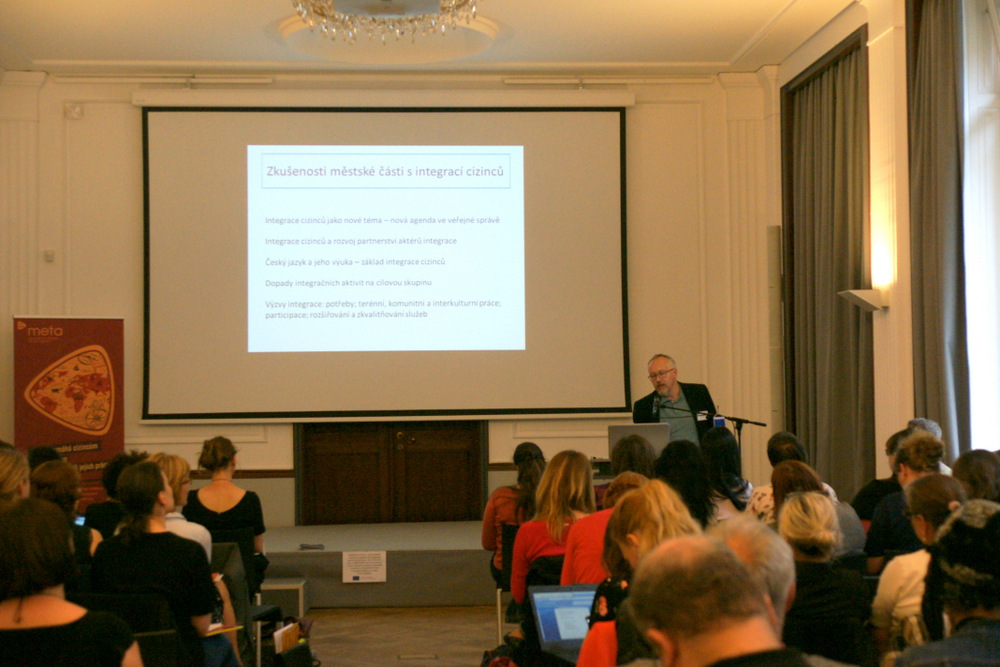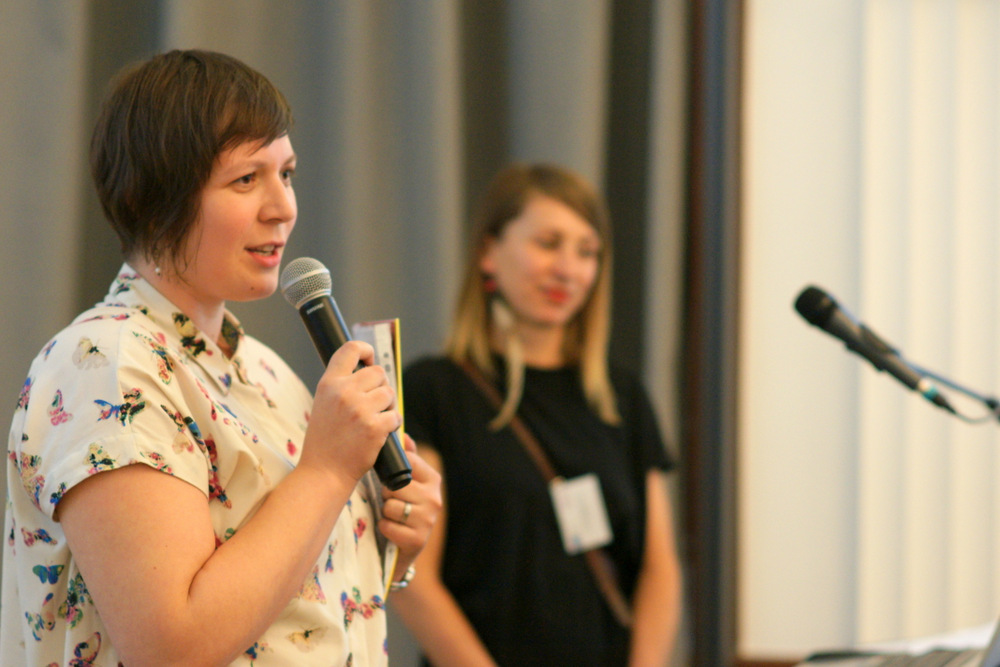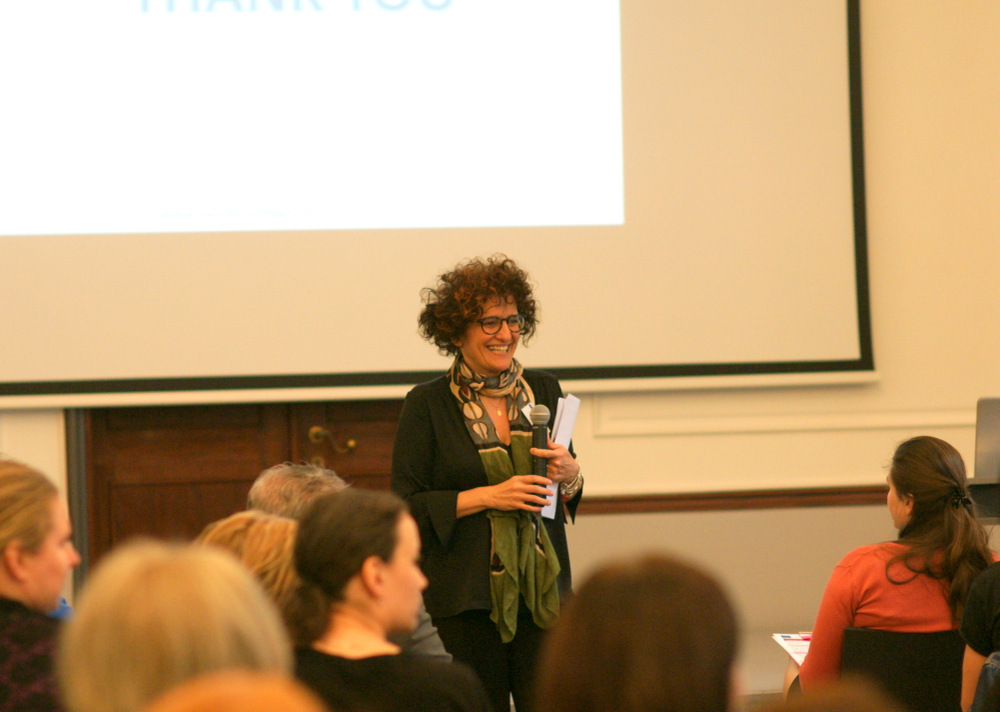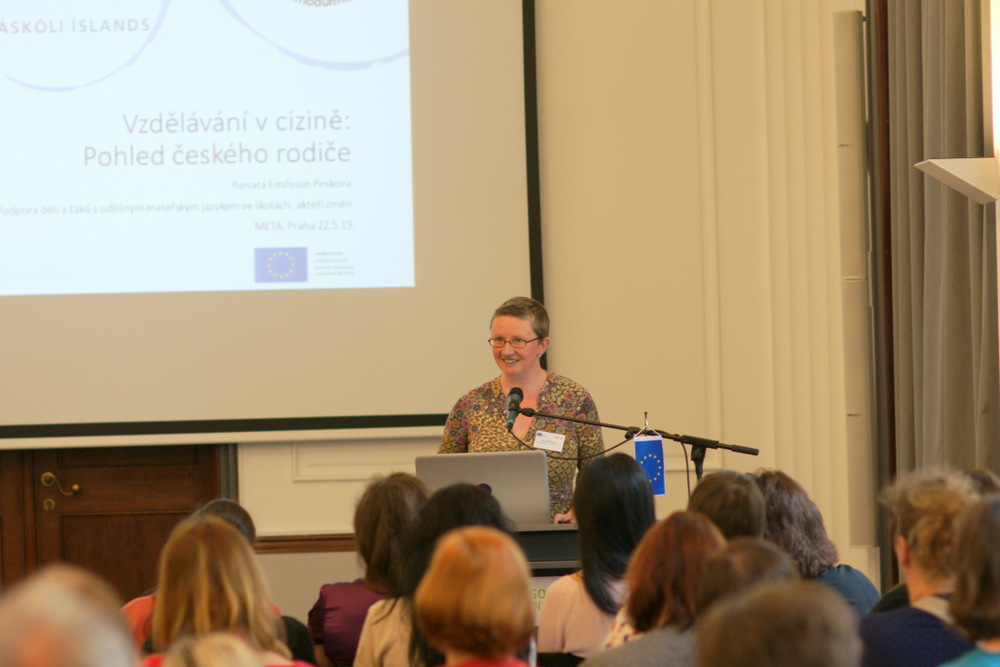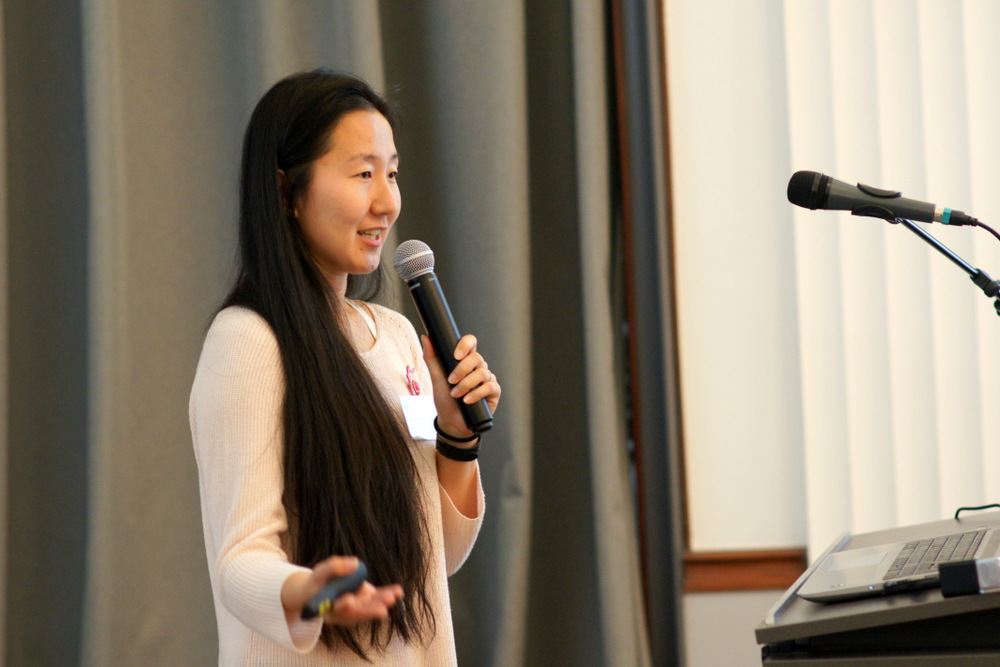The issue of children with a different mother tongue was widely discussed at an international META conference in May (2019)
Conference in Brno: The education system does not take account of pupils with a different mother tongue (January 2020)
24.1.2020OUR SERVICES DURING EMERGENCY STATE AND OTHER USEFUL INFO
13.3.2020pedagogical staff
professional public & media
Volunteers
and internship
pedagogical staff
professional public & media
Volunteers
and internship
The issue of children with a different mother tongue was widely discussed at an international META conference in May (2019)
META approached this year’s international conference widely and presented the education of children and pupils with a different mother tongue (DMT) through perspectives of many of its representatives. What linked all speeches together was the essence of a successful integration itself, and that is the child’s psyche, their basic needs, experience, and specifics, which are all a part of the change in language and cultural environment. And help with satisfying a child’s basal needs, including ensuring a safe and respectful environment, is a necessary condition for successful education. As added by the Program Director of META, it is important to think of teachers as well because they also need help, support and respect for their feelings and needs in their often difficult situation. There were 16 enthusiastic and brave people who took turns at the lectern in the Goethe-Institut one day in May and they presented their experience to a hundred of visitors. You can find a short description of their speeches and download their presentations below.
META is switching to a new visual style, which has emerged in some presentations and in the recently published annual report realised for META by Studio Breisky.
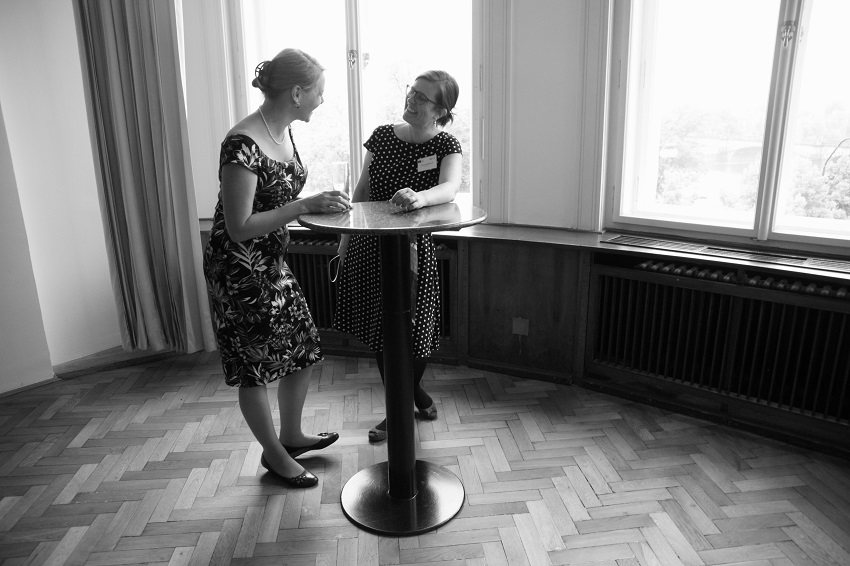
CHILDREN FROM THE PERSPECTIVE OF A CHILD, PARENT AND COMMUNITY
From Beijing to the Czech Republic
A child’s point of view was provided by Xue Chadtová, current teaching assistant in the Čtyřlístek kindergarten and a tertiary technical school student. She came to the Czech Republic from Beijing when she was 9 years old. With zero knowledge of Czech, she started studying at a Czech school. Except for individual Czech courses, which she got to experience with all her senses, the needs of acceptance and well-being played a key role in the process of inclusion in both the school and society.
My childhood beginnings in the Czech Republic (Xue Chadtová Song, Čtyřlístek kindergarten, Prague)
Experience from Kansas and a child’s well-being as a condition for successful education
We were introduced to the world of experience and needs of children with a DMT living in two cultures by Lucie Hubertová, a teacher at the Technical University of Liberec, children counsellor and a mother with migration experience. She described some psychological aspects: loneliness, feeling uprooted, exhaustion, silent period, development of ethnic identity etc. and she suggested some ways of dealing with them. She described some models: CAP (C. Igoa), culturally sensitive counselling, the system of support for children with a DMT at Manhattan High School in Kansas. And in the end, she pointed out empathy, acceptance, and helpfulness towards children with a DMT, and applying motivational assessment and counselling taking cultural specifics into consideration. Because as she says: “A child’s good mental state, their well-being, is the fundamental prerequisite for their optimal development, including prerequisites for learning!”
Psychological aspects of children living in two cultures (Lucie Hubertová, Technical University in Liberec)
Support of the mother tongue of Czech children living in Iceland
For 10 % of children studying at Icelandic schools, Icelandic is their second language. All children need to communicate. Communication is even more complicated for children with a DMT. For their successful integration, in addition to knowledge of the language taught in, it is also important to evolve their mother tongue and get to know their own roots. Last but not least, an educational system is needed that can adapt to the needs of pupils and does not require the opposite. An active role of immigrants is equally as substantial. Renata E. Pešková from the University of Iceland drew on the concept of education used in Iceland, where… “The role of a primary school, in cooperation with home, is to support the overall development of students and prepare them for an active involvement in democratic society, which is constantly evolving. Practice and methods in primary schools are characterized by tolerance and favour, Christian heritage of Icelandic culture, equality, democratic cooperation, responsibility, interest, forgiveness, and respect towards human values. A primary school strives to organize its activity to fully fit the position and needs of its students and support their overall development, welfare and education of each individual.” A 21st century school, where evaluation in the form of advice takes priority over comparison of each other, where both children and teachers have space to educate each other and discover their strengths together.
Education abroad: perspective of a Czech parent (Renata Pešková, Faculty of Education, the University of Iceland)
To be the best in the world
Community school in Palermo builds the support of children on respect towards each other and others. At the same time, as said by Stefania Guccione, didactic coordinator of Thomas More Scuola Paritaria Bilingue and the head of PUERI soc. coop. soc., „You need to give your child a chance to be the best in the world.“ Children must feel good at school, otherwise it is impossible to start with education. Foreign children are a part of the group of children with special needs and that is also one of the reasons why we cannot consider the lack of knowledge (an unfulfilled assignment) in second language a mistake. The system of support at the community school in Palermo is based on the specifics and needs of children with respect to their age, and according to that, the children are offered activities related to second language learning and development. In Palermo, they support the involvement of classmates and mutual help while fulfilling ordinary tasks, they work with volunteers and they work closely with parents. And which strategies do they use? „Everything can work smoothly with patience, plenty of time and a little help from everyone.“
Experience and strategies of a community school (Stefania Guccione, Kindergarten and Primary School Palermo / Soc. Coop. Soc. PUERI, Italy)
WHO AND HOW INFLUENCES THE SUPPORT OF CHILDREN WITH A DMT AT SCHOOLS
Tereza Vágnerová, pedagogy expert of META, drew on the first part of the conference and described the support provided by META. She described the forms of help, such as accredited education programmes for teachers, methodical support, networking of the key participants in regions etc. that are always aiming to arrange the best possible support. Besides other things, she mentioned that the highest number of foreign children is, right after Prague, in the Central Bohemian, Plzeň and Ústí nad Labem regions. Only a small number of these children is supported within development programmes. She stressed the importance of cooperation among the key participants, for example educational and psychological counselling centres are a necessary partner while setting effective supportive measures.
Radka Nováková and Jiřina Bartošová, multipliers of META, presented their experience in regions. They talked about the cooperation with the key participants and about searching for and finding ways how to help children without sufficient knowledge of language. They also mentioned the significance of enrichment brought by working with children with a DMT. It is also obvious that the cooperation with educational and psychological counselling centres in the region and with non-profit organizations works, and there is good practice of schools with a children with a DMT experience as well.
It is still true, though, that there is lack of system support and of the real number of children in need of Czech lessons (we know only the number of foreign pupils so far), as well as the analysis of schools’ needs for education of such children.
The support of teachers at primary schools and networking of the key participants in regions (Tereza Vágnerová, Radka Nováková, Jiřina Bartošová, META, o.p.s.)
META’s survey findings
Blanka Tollarová and Renáta Mikešová from the Institute of Sociology of the Czech Academy of Sciences presented the evaluations of a survey realised by META this spring at schools in Prague, Plzeň, Central Bohemia and Ústí nad Labem regions. The survey investigated, besides the number of pupils with a DMT, their level of knowledge of Czech, more precisely the amount of the language support they need. The survey was realised at 175 schools educating 72,073 pupils in total. The average number of pupils at one school is 412, the average number of foreigners is 28 and the average number of pupils with a DMT with knowledge of Czech on levels 0, 1 and 2 is 21. It turned out that schools in Prague and Plzeň are experienced in educating pupils with a DMT. There are 5-7 % of children with zero knowledge of the language at schools. The survey investigated the use of ways of supportive measures for children with zero knowledge. Most often, schools make use of the intervention of facilities of school counselling, teaching assistants, afternoon clubs of Czech as a second language. Only 13 schools teach Czech as a second language (CSL) at a region appointed school and only 3 schools offer CSL as an optional subject. Almost half of the schools use less supportive measures than the average (i.e. they support pupils noticeably less than other schools), they are used by Prague schools the most. For schools, the support of non-governmental organizations, which offer Czech lessons, methodical support etc., is also important. The survey has also shown that intensive Czech lessons combined with the support of a teaching assistant and afternoon clubs, which experts consider optimal, are offered only by a fifth of the schools. This support is offered the most by schools with a high number of pupils with a DMT (in Prague and Plzeň region). The schools stated that the best tools for dealing with the situation of pupils with a DMT are an immediate right to provide lessons of CSL (more than half of the schools), more means of wage, experts on CSL lessons, methodical support, more finances for teaching assistants, a shared teacher of CSL lessons for more schools and further education for teachers on the issue of children with a DMT inclusion.
Children with a DMT and their support at schools: META, o.p.s. survey findings (Blanka Tollarová, Renáta Mikešová, the Institute of Sociology of the Czech Academy of Sciences, v.v.i.)
Common address in Prague 13
The project “Common address – Prague 13” and experience with foreigner integration of the district were mediated by Petr Syrový from the department of prevention and social services development. Around 12 thousand foreigners in the district provide Czech courses, educate teachers, run a club for children, throw social events and various gatherings. There are approximately 900 children at the primary school, Mr Syrový also emphasized that already children in kindergartens need support.
Project “Common address – Prague 13” – experience with foreigner integration (Petr Syrový, the Department of Prevention and Social Services Development, district Prague 13)
It is not only the Czech language that children need
Jan Heinrich, social worker from META, confirmed the need of comprehensive support of children with a DMT and of multidisciplinary approach. He stressed, among other things, that relationships with parents are an important aspect of integration at school, the opportunity to participate in leisure activities and starting relationships with their peers. A big topic is also the evaluation in the form of grading, where children without an adequate support repeatedly fail, for example in cases of dictation, specified words, essays etc. The consequence of their failure is demotivation, fatigue, sadness, depression, or behavioural disorders.
“It is not only the Czech language” – cooperation with families of pupils with a different mother tongue (Jan Heinrich, META, o.p.s.)
INCLUSION OF CHILDREN AND PUPILS WITH A DMT: MODELS OF SCHOOLS
Communication, adaptation, integration in society and Czech in kindergartens
Tereza Linhartová, pedagogy expert of META, focused her speech on the support of children with a DMT in kindergartens. She presented a list of activities kindergartens can do to efficiently integrate a child with a DMT. One of the important supportive measures, besides systematic development of Czech, is the communication with parents even before the child joins the kindergarten and planning of their adaptation and further communication. She also emphasized the importance of providing information to parents in various languages and the integration of a child in activities with the whole class.
Examples of support of a child with a DMT in kindergarten (Tereza Linhartová, META, o.p.s.)
Masaryk Primary School in Plzeň
50 children without an adequate knowledge of Czech study at the school and 98 pupils have special needs. The pedagogical staff is extended by 12 teaching assistants. The school’s headmaster Antonín Herrmann considers the role of the inclusion coordinator, as well as a financial aid for assistants provided by the state, essential. Ideally, the school should get money from the province to ensure equipment for pupils under inclusion, which the school would treat flexibly and responsibly. This wish comes from insufficient system support the school calls for. The inclusion coordinator Lucie Sichingerová then inspired through examples of children with a DMT she works with. The biggest initiators of change turned out to be the children who, besides Czech lessons, need interest and safe environment.
Experience with support of pupils with a DMT at primary schools (Antonín Herrmann, Lucie Sichingerová)
Primary school in Týnec nad Sázavou
A specific form of support is needed in schools educating a small number of children with a DMT. A guidance counsellor plays a key role here. The guidance counsellor for the primary school in Týnec is Radka Nováková, who is the deputy headmaster for the primary school. As a guidance counsellor, she communicates with parents and provides support within the school. She communicates with educational and psychological counselling centres, creates individualized education programmes, cooperates with fellow teachers and teaching assistants.
Secondary schools search for and find ways
In the past two years, when Michaela Jiroutová has worked as a pedagogical expert in META, the situation with pupils’ inclusion in secondary schools has moved forward. It is still true, though, that pupils with a DMT do not have the same chances to be accepted into secondary schools as native speakers. Given the current conditions in the educational system, the pupils have to rely on what the school manages to arrange. A certain role is also played by one’s own initiative and diligence. And even though the pupils often try hard, it is obvious that after a day spent at school, they are tired and exhausted during their afternoon Czech lessons. Besides entrance exams, there is also the maturita exam, where foreign students face failure. If word problems are the sticking point of entrance exams for pupils, then with maturita exams, it is the essay and the didactic test, which are designed for native speakers.
Secondary schools are searching for and finding ways to support pupils with a DMT during their studies (Michaela Jiroutová, META, o.p.s.)
Prepared by Lucie Soukupová, PR and networking
Support of children and pupils with a different mother tongue at schools: participants of change
22 May 2019, Goethe-Institut, Masarykovo nábřeží 32, Prague 1
Programme
The conference was a part of the project Programme for the support of pedagogical workers in their work with foreign pupils VIII (reg. no. AMIF/7/03), which is funded under the national programme of the Asylum, Migration and Integration Fund and the budget of the Ministry of the Interior of the Czech Republic.



